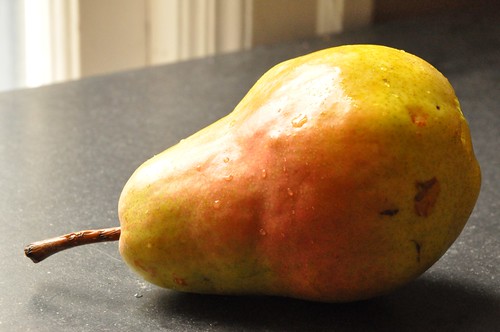The path to mastery is found in practice, a sentence filled with wisdom worthy of a fortune cookie and now proven by neuroscience, knowledge we’ve long consumed, er, assumed.
In a recent article in The New Yorker about writing and artificial intelligence, I had learned that studies of brain imaging found that professional writers used a part of their brains (the left caudate nucleus found in the midbrain) linked to expertise in musicians and professional athletes. With amateur writers, neurons fired in the area of the brain associated with visual processing, the reporter John Seabrook wrote. “Writing well, one could conclude, is, like playing the piano or dribbling a basketball, mostly a matter of doing it,” he said.
I stare at the computer screen and sigh, then chide myself for it. I tell myself to buck up, to remember that the reward is the journey as I imagine my head cracked like a cookie. From my gaping mouth unfurl slips of paper that hold fortunes and lottery numbers. Don’t like this one? Take another. Eat up! Eat up! Eat until you’re satiated with sweet sentences and ready to brush the crumbs off your lap, knowing that success comes to those who persist.
I’m playing with words, with you, and it’s fun, though not enough to keep me in my chair. I wander away from my desk, pick up a tube of Russian Red lipstick and put it on, examine myself in the mirror, then to the kitchen where I butter bread and swap out my cold cup of coffee for tea. Back at the desk, I notice the bread contains teeth marks and lipstick stains. Distraction is the enemy of the worker and her waistband. Unwilling to have the bread and its baleful stare watch me work, I eat it quickly. The few crumbs of recrimination left on the desk are easily ignored.
Each week for a year now I’ve come to my desk to write and eat and write and drink with you in mind, sharing passages from books I’ve enjoyed, scraps of life that’ve amused or troubled me, bits of story I’ve imagined. I’ve a writing practice or maybe I practice writing. Keep this up, the neuroscientist says, and I’ll master the craft, though I must, must, must remember that wordsmithery doesn’t equate to publication of a story, only the writing of it. From between red lips I pull a fortune–The heart that knows there is nothing to look for beyond this moment will accept them all–a fortune meant for me, but not of me, for it belongs to the poet Jane Hirshfield.
I sigh, again, my breath warm against your skin and smelling of toast and tea. Who are you, anyway, to have discovered this place, a quiet cul de sac on the information superhighway? A fellow wanderer, maybe? A lonely and lonesome traveler? The image draws forth a song, music surfacing in the mind, a plaintive song I sang with my mother as we backpacked the Sierra Nevada mountains when I was, maybe, 16, sung as I wandered over mountain and meadow, a song carried on breeze that brought the music of cow bell and blue jay to my ears, a song as I made my way home, to stairs that I couldn’t climb because my muscles were so weary.
Here lay three lines from Hirshfield’s essay “Writing and the Threshold Life,” found in the collection, “Nine Gates: Entering the Mind of Poetry”:
“It is the task of the writer to become permeable and transparent, to become, in the words of Henry James, a person on whom nothing is lost. What is put into the care of such a person will be well tended. Such a person can be trusted to tell the stories she is given to tell, and to tell them with the compassion that comes when the self’s deepest interest is not in the self, but in turning outward and into awareness.”
…
Here lay three dots to form the ellipsis marking the passage of time that passed since I quoted the poet, an omission of minutes, not speech, a subterfuge better left to our impeachable president than to me: one dot for the fruitless search online for my hiking song; one for the length of minutes spent moving clothes from washer to dryer; the last dot for the pear, pulled from the refrigerator, cold and ruddy. I slice it thin, translucent flesh glistening in the palm, a small, moist fish. I raise it to my lips, and like communion, eat.
- The Next Word: Where Will Predictive Text Take Us? by John Seabrook, The New Yorker.
- In my effort to find my hiking song online, I discovered Lonnie Donegan’s  lonely and lonesome traveler. Had I’d hiked to his lively tune, I’d have likely gotten home much quicker.
- Hirshfield on difficulty as a path toward concentration.
- “Nine Gates: Entering the Mind of Poetryâ€Â (public library).
- Living a children’s story: Pears and chocolate, 2010.

Leave a Reply